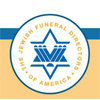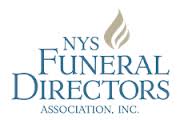JEWISH FUNERAL GUIDELINES
GUIDELINES TO A JEWISH FUNERAL
*Provided By Birnbaum Funeral Service, INC.
Jewish belief, rituals and traditions that surround death and burial are governed by the core belief in the sanctity of the body. The respect that the deceased individual receives and deserves in life is carried forward in the Jewish funeral, with the rituals of washing, dressing, caring and guardianship. These rituals, and the funeral itself, are sacred rites invested with dignity and simplicity and with the greatest consideration and respect for the dead.
Jewish funerals avoid ostentation; family and visitors reflect in both dress and behavior the solemnity of the occasion; embalming and public viewing are avoided; and interment takes place as soon as possible after death. Adjusted to accommodate legal obligations or if a close relative or friend must travel, long distances to attend.
The preparation and burial of the body are highly valued mitzvoth, ritual commandments. They are considered to be acts of kindness performed by the Chevra Kadisha a group dedicated religious Jewish people, with the support of clergy and in cooperation with Birnbaum Funeral Service, Inc., the Chevra prepares the deceased for burial.
ANINUT, THE TIME BETWEEN DEATH AND BURIAL
From death to burial, when the family is in fragile state, traditions help carry them forward. During this tie the responsibilities of close relatives (spouse, father and mother, son and daughter, brother and sister) is to attend for the funeral and burial. Religiously, they are exempt from certain obligation. Socially, they exercise moderation and simplicity in their daily lives.
TAHARA, PREPARATION
Tahara, the ritual washing of the deceased, purifies the body for its return to the Eternal. Prayers are recited for the soul’s eternal peace. The rituals are dictated by the concept of K’vod Hamet, the respect for the deceased. In keeping with standards of modesty, these rituals are performed by our local Chevra Kadisha men for men, and women for women, who perform Thara with respect and confidentiality.
*NOTE: LAST SENTENCE = Is it THARA or TAHARA?.
TACHRICHIM, BURIAL GARMENTS
Tachrichim, simple white shrouds, have been used as burial garments by Jewish people for over two thousands years. The use of tachrichim was initiated to symbolize that, from the poorest to the richest; all Jews are equal before the Eternal. We encourage families to continue the tradition and custom of tachrichim.
SHMIRAH, GUARDIANSHIP
The concept of shmirah, guardianship, highlights the respect and caring with which Jewish tradition provides for Shomer, a guardian, to be with the deceased before burial. The Shomer recites Psalms and engages in other study. A Shomer may be a member of the Chevra Kadisha, or individual designated by Birnbaum Funeral Service, Inc.
ARON THE CASKET
The inner holiness of the individual finds outer expression in the casket. In light of the biblical teaching “For dust you are not to dust you shall return” (Genesis 3:19), tradition calls for the use of all-wood caskets.
Wood is natural and a product of the earth. Caskets made of pine, mahogany, walnut, cherry and other woods also lend warmth, beauty and a sense of timelessness.
If a family chooses, the casket may be adorned with Jewish symbols, and important personal possessions placed in it. Earth from Israel is also traditionally placed on the deceased as a symbol of our longing to dwell in Israel.
Jewish law dictates the casket remains closed during the service.
THE FUNERAL SERVICE
Funeral Services comfort the mourners by enabling them and members of the community to call up memories of the deceased and express their grief. Services may be held in the synagogue, in chapel or wherever the family may wish.
A traditional Jewish funeral service is brief and simple; its basic elements include the chanting of psalms and El Malei Rahamin, containing the Hebrew name of the departed and affirming the soul has been received by the Eternal It also includes a hesped, a eulogy honoring the deceased. The wishes and choices of the deceased as dictated in a Will, and of the family, are paramount.
The casket is taken from the site of the funeral service to the gravesite by selected family and friends acting as pallbearers. Following the casket in procession is a mark of respect. The casket is placed in its final resting place.
The Kaddish prayer in praise of the Eternal is recited by the mourners. Mourners for parents, a spouse, children, or siblings traditionally participate in the rite of k’riah, the rending of a ribbon or garments, as a symbol the some part has been torn from their souls. The torn clothing or ribbons are worn during Shivah (seven day) mourning period.
Upon burial, traditionally mourners pass between two rows of people in attendance so that they can receive expressions of consolation. After leaving the cemetery, before entering the house of mourning, hands should be washed. Stones are traditionally placed at the gravesite to mark a visit and show respect for the deceased.
A GLOSSARY OF TRADITION
Anuit: Time of period form death to burial.
Aron: Casket carrying the physical remains.
El Malei Rahamin: The memorial prayer recited at the funeral service, on visiting a gravesite, and during Yizkor services.
Hesped: Eulogy of tribute to the deceased.
Chevra Kadish: A brurial society, a dedicated group of men and women who wash and clothe a deceased in keeping with Jewish tradition.
K’raiah: Tear in garment of ritual ribbon, worn as a symbol of the rending of the heart at a loss.
K’vad Hamet: Respect for the deceased.
Kaddish: Prayer in praise of the Eternal, recited for eleven months for parents and thirty days for all others.
Kever Avot: Traditional time to visit the graves of loved ones, during the High Holidays between Rosh Hashanah and Yom Kippur.
Onen: Name for the bereaved during the period between death and the burial.
Seudat Havra’a: Meal of condolence served to mourners, traditionally including hard boiled eggs as a symbol of the cycle of life.
Shiva: Intense seven day mourning period that begins after burial.
Shiva Candle: Candle to be lit upon return from the cemetery that burns for the seven day mourning period.
Shloshim: Less intense initial third day period of mourning, ending in full integration of mourners back into society.
Shmirah: Attending to the deceased’s body so that is not alone from death to burial.
Shomer: Person “guarding” the body who recites Psalms to honor the deceased.
Tachrichim: White linen or cotton shrouds worn by a deceased to indicate equality.
Tahara: Ritual washing of the death on which a 24 hour memorial candle is lit and synagogue service is attended to recite the Kaddish prayer.
Tzedakah: Charitable acts in memory of the deceased.
Yahrziet: Hebrew anniversary of the death on which a 24 hour memorial candle is lit and synagogue service is attended to recite the Kaddish prayer.
Yiskor: Memorial prayers recited on Passover, Shavout, Sukkot, and Yom Kippur at a synagogue service.



